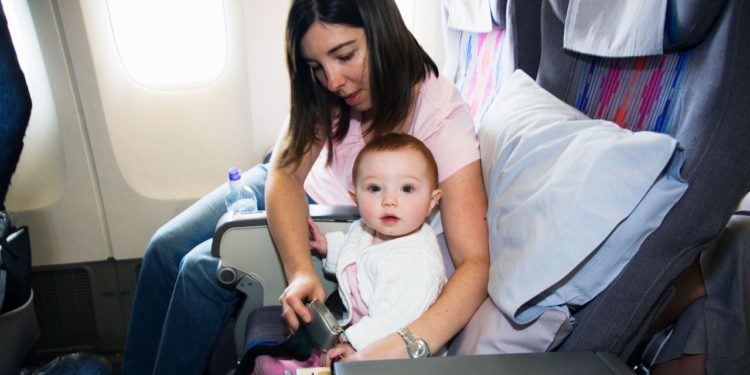By WIRED
As terrible as that tradeoff is, it’s worth noting that the risk of death on a commercial airliner to anyone, lap-held infants included, remains vanishingly low—so let the pangs of guilt subside if you’ve flown holding your baby on your lap. “Commercial aircraft accidents are still extremely rare, and the logistics of having infants in specific seats, with the installation of a CRS for every flight, may outweigh the safety aspects,” notes Sarah Barry, deputy head of the School of Aviation and Security at Buckinghamshire New University in the UK.
That said, the FAA’s cost-benefit analysis hasn’t convinced everyone. Last year, the Association of Flight Attendants–CWA union called for a change to the rule, and a requirement for a seat for all passengers, as they have for the past three decades.
That campaign was sparked in part by the crash of United Airlines Flight 232 in 1989, in which 112 passengers were killed out of the 296 on board. The aircraft’s systems cut out midair, and with a crash landing imminent, flight attendants told parents of lap-held babies to place them on the ground between their feet, surrounded by blankets, and hold them down as best they could. Of the four lap-held infants on the flight, three suffered injuries, and one—22-month-old Evan Tsao—died of smoke inhalation after slipping into the rear of the craft.
The following year, the NTSB added seats for infants to the FAA’s list of most wanted safety improvements, but the request was removed in 2006 after the FAA’s own modeling showed that buying that extra ticket would motivate 20 percent of families to drive rather than fly—in particular, those with the tightest budgets—and in turn lead to an increase in road deaths.
That belief was backed up by academic research in 2002 that showed the policy change would cause a small net increase in deaths, even if as few as 5 percent of families opted to hit the road instead. Plus, the study found the cost of regulation per death avoided would be about $1.3 billion at the time, deemed by the researchers “a poor use of societal resources.”
The researchers admitted there were limitations to the paper, as they didn’t consider what would happen if seats were free of charge, or if airlines simply gave empty, unsold seats to parents by shifting seating arrangements. (It also ignores the fact that ticket prices often increase for other reasons, and that the cost-benefit balance may shift in other countries where driving is not an option—trains are slightly less safe than planes, but nowhere near as dangerous as highway driving.)
Of course, there’s more to inflight safety than deaths, notably injuries through turbulence. In the US, no one has died from turbulence on a commercial airliner since 2009, though there have been 146 serious injuries—think broken bones, burns, or organ damage—of which the vast majority were suffered by crew members rather than passengers.
However, research from the University of Reading in the UK last year showed that flights were getting bumpier due to climate change, with severe turbulence across the North Atlantic increasing by 55 percent since 1979. Though severe turbulence is experienced for only a small portion of overall flying time, and is spotted in less than 0.1 percent of the atmosphere, that could still lead to more injuries.







Discussion about this post